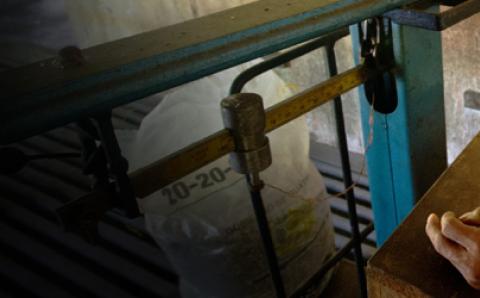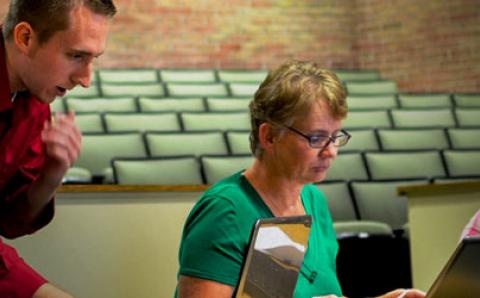If you don’t have time to attend both Sunday morning worship and a small group, choose the small group.
A small group at Sunrise Community CRC.
Members of Sunrise Community Christian Reformed Church in Austin, Tex., are accustomed to hearing this announcement every Sunday. It’s part of the church leadership’s commitment to making church small groups successful.
“We decided that if we’re going to do [small groups], we’re going to do this 100 percent,” said Mark Hilbelink, pastor of Sunrise. “Make sure our council members are in small groups, make sure our staff members are in small groups, make sure we’re talking about it every Sunday from the pulpit. We recognized that today’s version of what we call church (Sunday morning worship) is not as spiritually formative in the same way that small group spiritual formation occurs.”
Hilbelink said the church wants to create “intimate community within the Christian faith that drives accountability, recovery, saving marriages—things like that.”
“A lot of that stuff could not happen in a Sunday morning worship service. We actually believe that the more formative environment is intimate community and not public worship,” he said.
Small groups at Sunrise are not highly controlled. Groups decide what to study and who will be a group leader. The only requirement is to incorporate a “seven plus two” principal. They must practice seven things: prayer, study, eating together, accountability, service, evangelism, and pastoral care. And they must incorporate two principles: mentoring and planting.
The church has many resources for small group leaders; leaders gather together once a quarter for resourcing and accountability.
Hilbelink estimates that approximately 70 percent of the church’s members are involved in a small group.
About the Author
Sarah Boonstra is the Banner's regional news correspondent for classes Rocky Mountain and Yellowstone.







